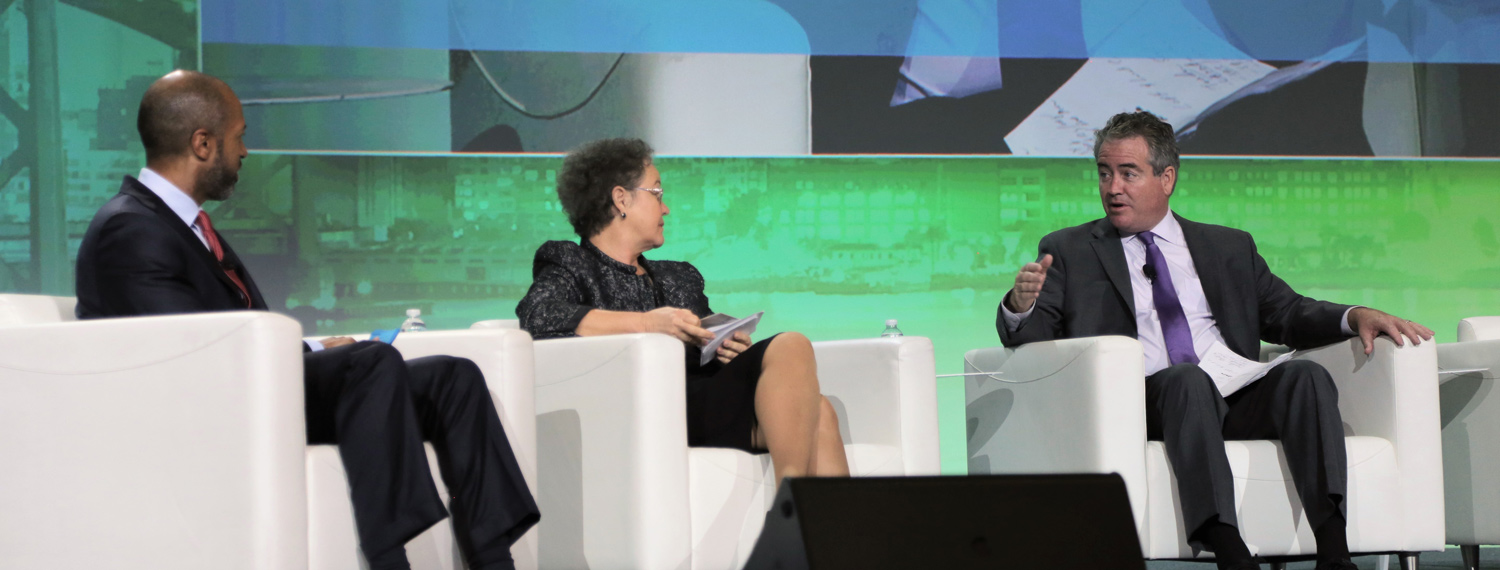
“I’m a big fan of early childhood education, I don’t think anybody isn’t, but the question is where is the money to come from,” said O’Donnell, the chairman of the Assembly Education Committee. “We are not going to raid Proposition 98 dollars.”
Increasing the base revenue for K-12 schools is imperative, Association of California School Administrators Executive Director Wes Smith said. “There is this narrative that Gov. [Jerry] Brown fixed it,” Smith said of K-12 funding, agreeing with O’Donnell that board members must play a key role in educating legislators about their struggles and need for additional Local Control Funding Formula money, just as CSBA and its allies do.
Some Assemblymembers and Senators must be made to realize that the current base funding is inadequate and that cost-of-living increases to Prop. 98 are the bare minimum and nothing to celebrate, said Kevin Gordon, president and partner of Capitol Advisors LLC. “They’ll do the COLA, the question is will they get something into the base LCFF beyond what it takes to just stay even with inflation, and that’s going to be the challenge this year,” he said.
Going further, School Services of California Inc. President and CEO John Gray offered a warning about the current K-12 funding model’s “maintenance mode.” “If we’re on a COLA-only model, with all the pension costs and all the other increased costs, I think we’re going to be doomed,” he said.
“I don’t think anyone’s trying to erase them off the face of the Earth, but the fact of the matter is they need to be just as accountable with public dollars as a standard K-12 school,” O’Donnell said.
In her studies, Learning Policy Institute President and CEO Linda Darling-Hammond said she has discovered there is a strong correlation between charter school oversight and success across the United States. She and Smith each also stressed the importance of ensuring equity and access for all students at charter schools, as districts aren’t allowed to pick and choose attendees when students move into their areas.
“We can’t allow choice to be used to resegregate American schools,” Smith said, predicting the Legislature and Newsom will have serious discussions about charter schools this year.
While crediting Brown for his guidance and implementation of LCFF and the Local Control and Accountability Plan, Darling-Hammond said the future of the system relies heavily on introducing a widely available system of support. “A big part of true accountability is a system of support that allows educators to get all of the knowledge and skills they need easily,” she said, reacting to a discussion about a possible push for greater LCFF accountability.
She also said the state and its educators can take pride in the fact that California has moved beyond just testing and instead focuses on the whole child.
Gordon reflected similarly on Brown, saying the outgoing Governor has been a champion for local control but never fully delivered on funding the LCFF to its full need. The current funding system, he said, simply brings California back to where it was before the recession. “We need a governor who helps get us to where we need to be,” Gordon said.
And while discussion of the future included economic forecasts and advice for preparing for a recession, Smith said the fact is that local educational agencies are already facing that situation because of declining enrollment, the increasing cost of facilities and pension costs — challenges too great considering current funding levels.
“There is an invisible recession that our members are dealing with already,” he said.